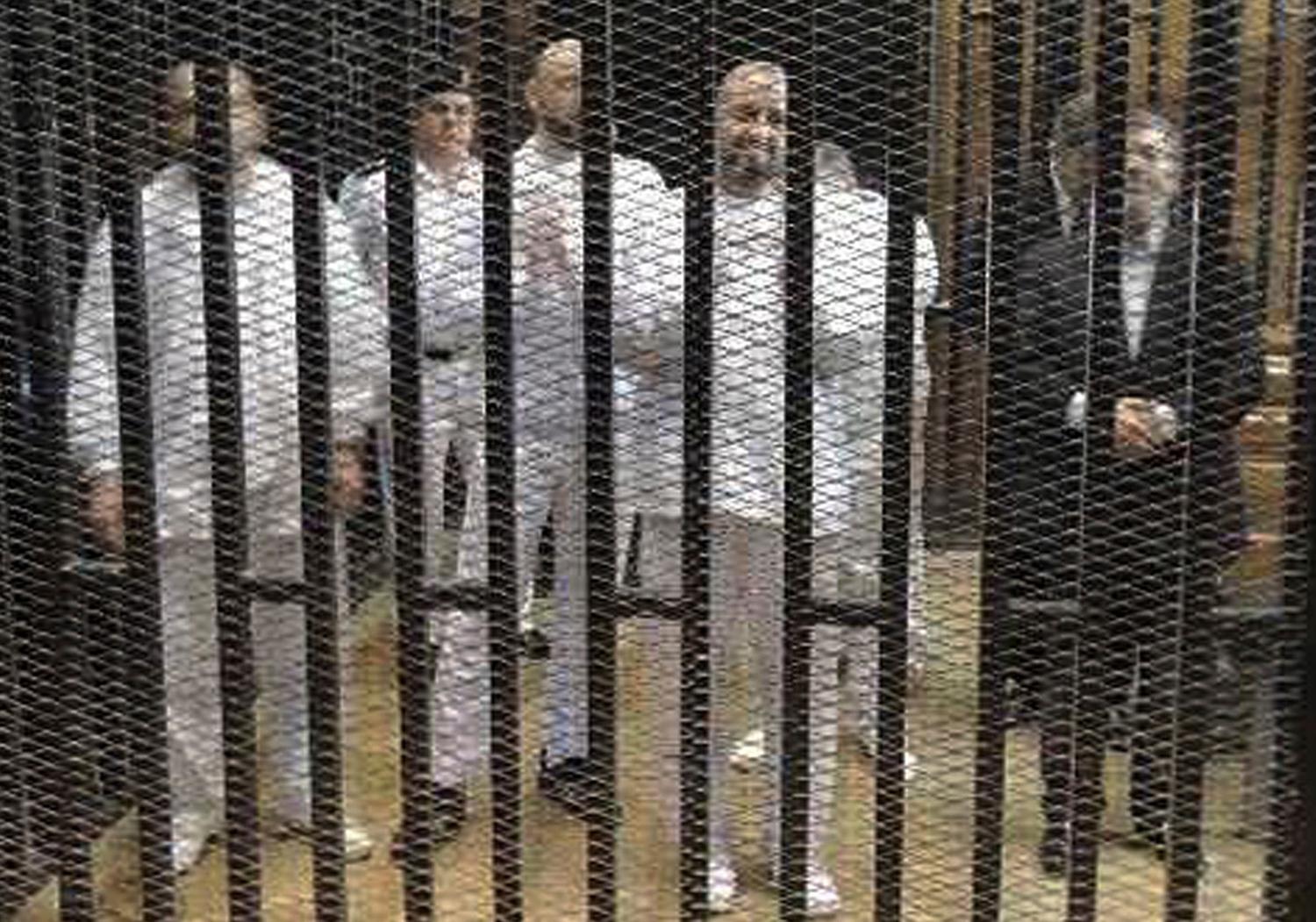A defiant Mohammed Morsi goes on trial in Egypt
Ousted former Egyptian president Mohammed Morsi (R) and other senior members of the Muslim Brotherhood in court in Cairo.
Egypt's ousted leader Mohammed Morsi went on trial in Cairo today. He and 14 other Muslim Brotherhood figures face charges of inciting the killing of protesters outside the presidential palace in 2012.
Morsi appeared for the first time since he was ousted by the military last July. He insisted that he is still the country's legitimate president and refused to wear the uniform required of the defendants.
After Morsi's remarks and his refusal to wear a uniform, the judge adjourned the trial until January.
Outside the court, Morsi's followers demonstrated in the street. Khaled Dawood, a spokesman for Egypt's liberal Constitution Party, said security was high.
"There were nearly no people in the streets, mostly armored vehicles and army and security people. They were expecting far bigger demonstrations. The streets seem to be rather back to normal except for a few skirmishes here and there."
Dawood's party opposed Morsi and now seeks a constitutional solution to Egypt's crisis. He says the trial represents a failure in Egypt's path to democracy.
"Nobody wanted the experience to end in such a terrible way," he says, "But at the same time, one of the major charges against Morsi is that he abused the rules of democracy, to make it democracy only for once and then you try to cancel all those rules."
He argues that Morsi gave himself "dictatorial powers that even Mubarak wouldn't dare to put it on paper."
Dawood doesn't describe what happened to Morsi as a military coup. He says his party is part of the government "and we are hoping to rewrite a new constitution and to agree on a new parliament and a new president, hopefully soon, probably by the middle of next year."
The real goal is change. "Egyptians have not seen any serious improvement in their lives, not just politically, but more important economically — jobs, health, education," says Dawood. "This is really what we made our revolution for 3 years ago."
Every day, reporters and producers at The World are hard at work bringing you human-centered news from across the globe. But we can’t do it without you. We need your support to ensure we can continue this work for another year.
Make a gift today, and you’ll help us unlock a matching gift of $67,000!
